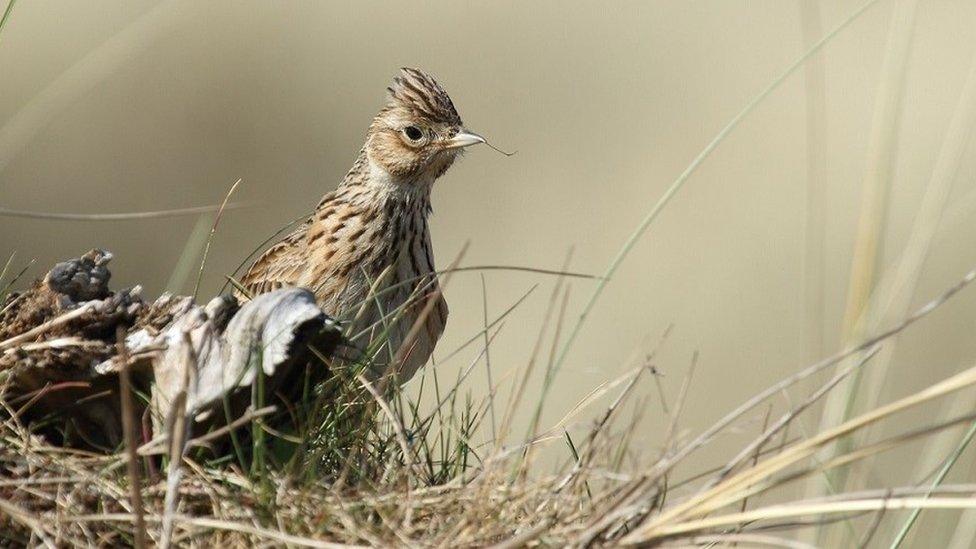'Rare and diverse' wildlife habitat created
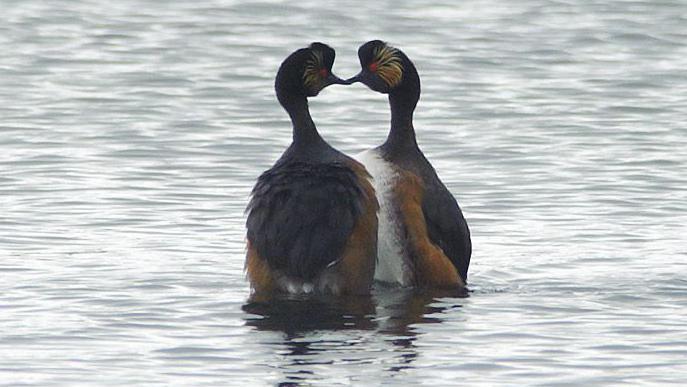
Black-necked grebe can be spotted at Hilfield Park Reservoir's nature reserve
- Published
A wildlife trust has described a habitat creation project on a nature reserve as the "most significant in 10 years".
Land at Hilfield Park Reservoir in Hertfordshire has been reshaped to boost reed beds, form lagoons and support the ecosystem.
The Herts and Middlesex Wildlife Trust called it a "rare and diverse habitat" and an important haven close to urban areas.
Work on the site, owned by Affinity Water, started in November and took a year to plan.
Josh Kalms, people and wildlife officer at the trust, said it would "provide hope for the future" and had "transformed" the area.
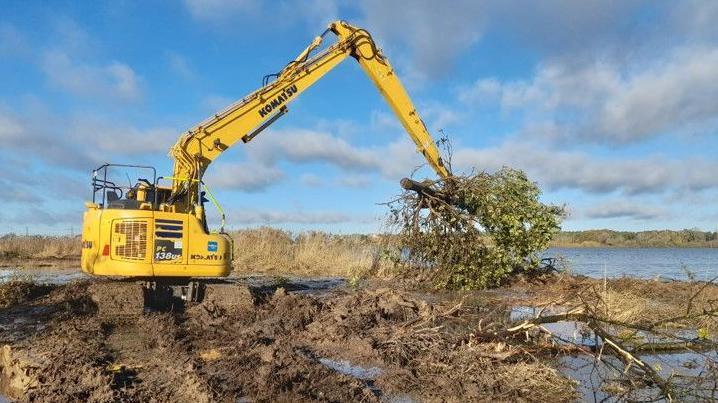
Trees were put into the water at the nature reserve
"We’ve reshaped the ground to allow bigger, better and more connected reed beds to form, created vast lengths of all-important shallow margins, formed lagoons, pushed invasive trees into the water to create ample submerged woody habitat and have pollarded trees to generate supercharged sunlit reservoir margins," he said.
"This project has transformed this area, creating a better connected, rare and diverse suite of habitats where wildlife will thrive."
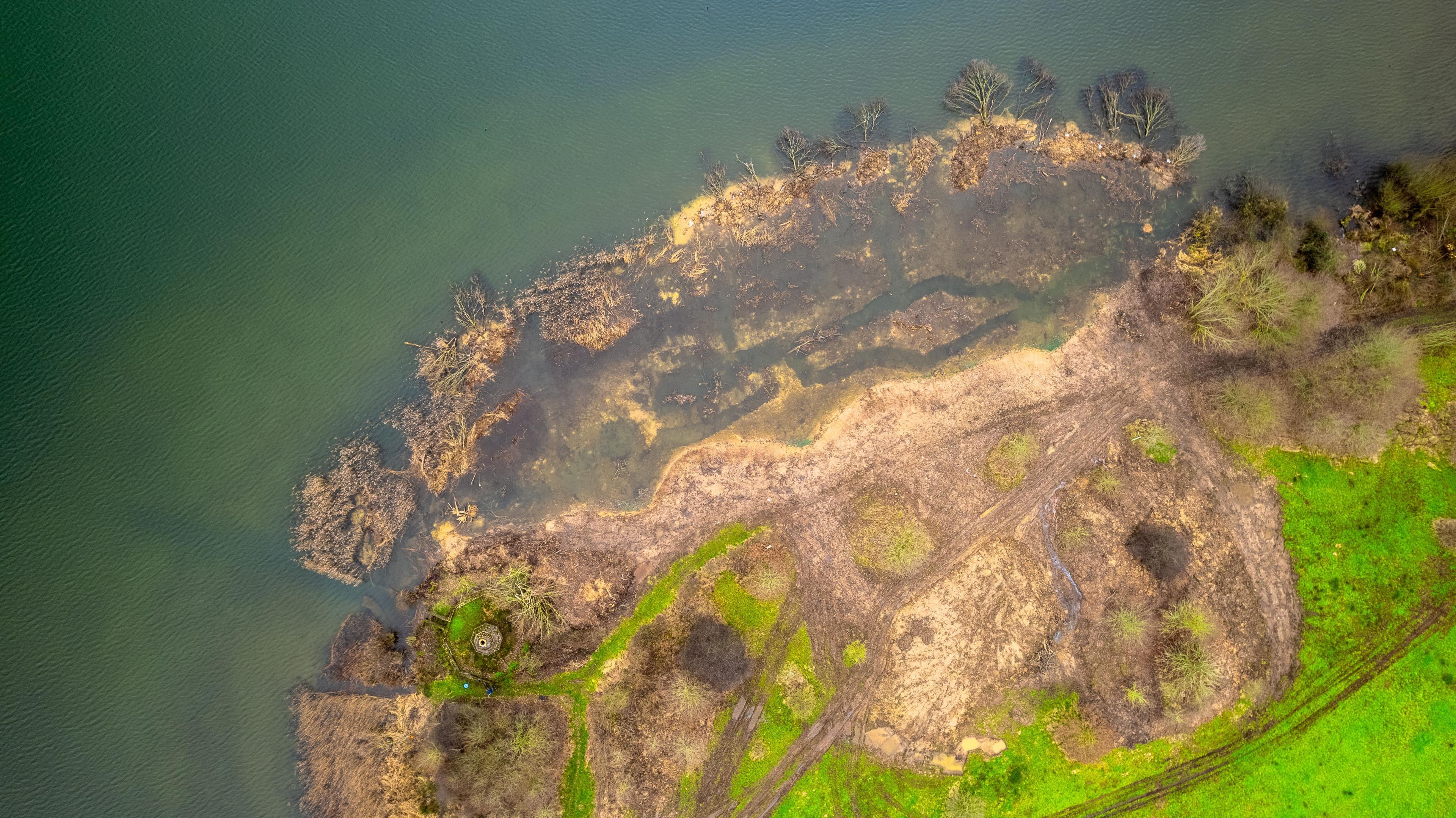
Hilfield Park Reservoir's nature reserve is "hugely valuable for local and visiting wildlife", Josh Kalms said
Alex Sage, biodiversity project manager at Affinity Water said: "We have seen significant changes over the years at Hilfield as a direct result of new management techniques, including increased numbers and species of dragonfly and the re-emergence of nationally threatened plant species."
The reserve is the only site in the south of England where Black Necked Grebes breed, the wildlife trust added.
It is a receptor site for dragonflies and damselflies and other species recorded there include osprey, Mediterranean gulls and kingfishers.
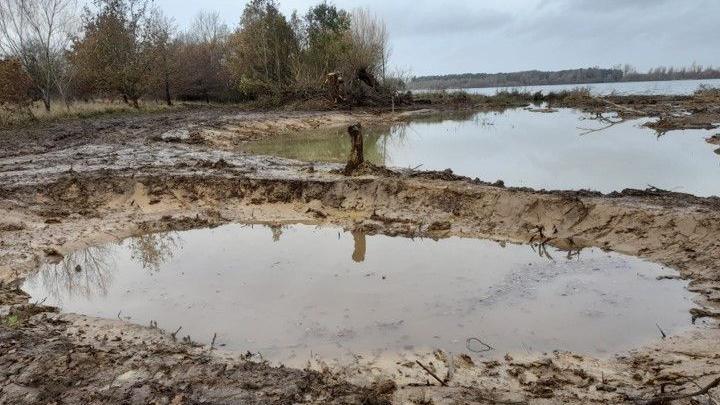
Ditches, creeks, lagoons and ponds have been created
Follow East of England news on Facebook, external, Instagram, external and X, external. Got a story? Email eastofenglandnews@bbc.co.uk, external or WhatsApp us on 0800 169 1830
You might also be interested in
- Published4 October 2023
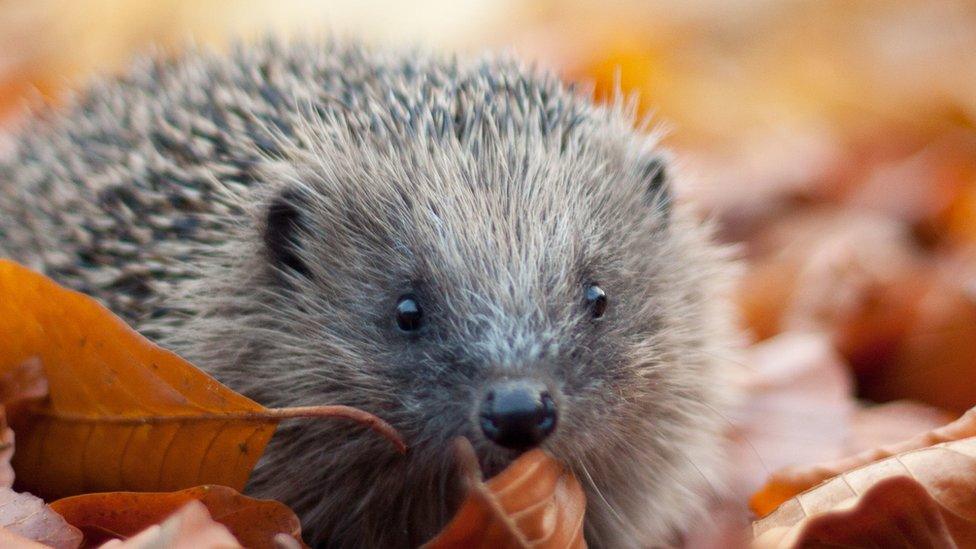
- Published25 July 2023
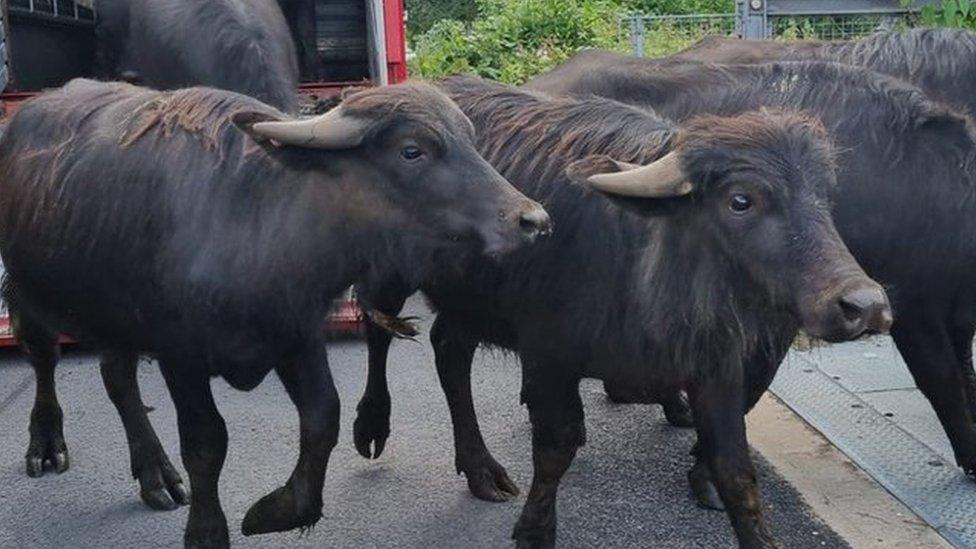
- Published28 October 2023
